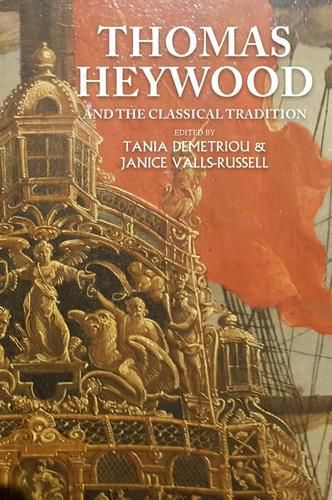Readings Newsletter
Become a Readings Member to make your shopping experience even easier.
Sign in or sign up for free!
You’re not far away from qualifying for FREE standard shipping within Australia
You’ve qualified for FREE standard shipping within Australia
The cart is loading…






This volume offers the first in-depth investigation of Thomas Heywood’s engagement with the classics. Its introduction and twelve essays trace how the classics shaped Heywood’s work in a variety of genres across a writing career of over forty years, ranging from drama, epic and epyllion, to translations, compendia and the design of a warship for Charles I. Close readings demonstrate the influence of a capaciously conceived classical tradition that included continental editions and translations of Latin and Greek texts, early modern mythographies and the medieval tradition of Troy. They attend to Heywood’s thought-provoking imitations and juxtapositions of these sources, his use of myth to interrogate gender and heroism, and his turn to antiquity to celebrate and defamiliarise the theatrical or political present. Heywood’s better-known works are discussed alongside critically neglected ones, making the collection valuable for undergraduates and researchers alike. – .
$9.00 standard shipping within Australia
FREE standard shipping within Australia for orders over $100.00
Express & International shipping calculated at checkout
This volume offers the first in-depth investigation of Thomas Heywood’s engagement with the classics. Its introduction and twelve essays trace how the classics shaped Heywood’s work in a variety of genres across a writing career of over forty years, ranging from drama, epic and epyllion, to translations, compendia and the design of a warship for Charles I. Close readings demonstrate the influence of a capaciously conceived classical tradition that included continental editions and translations of Latin and Greek texts, early modern mythographies and the medieval tradition of Troy. They attend to Heywood’s thought-provoking imitations and juxtapositions of these sources, his use of myth to interrogate gender and heroism, and his turn to antiquity to celebrate and defamiliarise the theatrical or political present. Heywood’s better-known works are discussed alongside critically neglected ones, making the collection valuable for undergraduates and researchers alike. – .